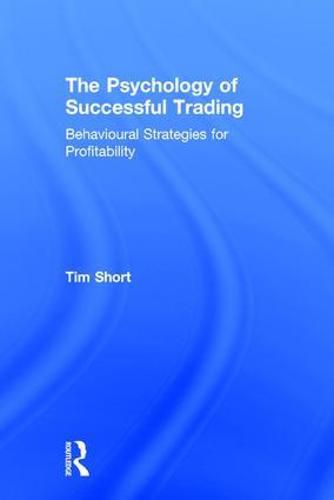Readings Newsletter
Become a Readings Member to make your shopping experience even easier.
Sign in or sign up for free!
You’re not far away from qualifying for FREE standard shipping within Australia
You’ve qualified for FREE standard shipping within Australia
The cart is loading…






This book is the first to demonstrate the practical implications of an important, yet under-considered area of psychology in helping traders and investors understand the biases and attribution errors that drive unpredictable behaviour on the trading floor. Readers will improve their chances of trading successfully by learning where cognitive biases lead to errors in stock analysis and how these biases can be used to predict behavior in market participants.
Focusing on the three major types of bias-Belief-Formation, Quasi-Economic, and Social-the book provides a rigorous discussion of the literature before explaining how each of these biases plays out in financial markets. The author brings together the fields of philosophical psychology and behavioral finance to introduce theory of mind, providing readers with tools to predict biases in others as well as using these predictions to form optimal trading strategies for themselves. Readers will also learn to understand their own behaviors, counteracting biases such as overconfidence and conformity-and the curse of their own knowledge-to strengthen trade performance. Pairing his skill and experience with an extensive research bibliography, Short positions the foundational sources of cognitive biases alongside concrete examples, experimental designs, and trader’s anecdotes, helping readers to apply theoretical guidelines to real-life scenarios.
Shrewd professionals and MBA students will benefit from The Psychology of Successful Trading’s intuitive structure and practical focus.
$9.00 standard shipping within Australia
FREE standard shipping within Australia for orders over $100.00
Express & International shipping calculated at checkout
This book is the first to demonstrate the practical implications of an important, yet under-considered area of psychology in helping traders and investors understand the biases and attribution errors that drive unpredictable behaviour on the trading floor. Readers will improve their chances of trading successfully by learning where cognitive biases lead to errors in stock analysis and how these biases can be used to predict behavior in market participants.
Focusing on the three major types of bias-Belief-Formation, Quasi-Economic, and Social-the book provides a rigorous discussion of the literature before explaining how each of these biases plays out in financial markets. The author brings together the fields of philosophical psychology and behavioral finance to introduce theory of mind, providing readers with tools to predict biases in others as well as using these predictions to form optimal trading strategies for themselves. Readers will also learn to understand their own behaviors, counteracting biases such as overconfidence and conformity-and the curse of their own knowledge-to strengthen trade performance. Pairing his skill and experience with an extensive research bibliography, Short positions the foundational sources of cognitive biases alongside concrete examples, experimental designs, and trader’s anecdotes, helping readers to apply theoretical guidelines to real-life scenarios.
Shrewd professionals and MBA students will benefit from The Psychology of Successful Trading’s intuitive structure and practical focus.